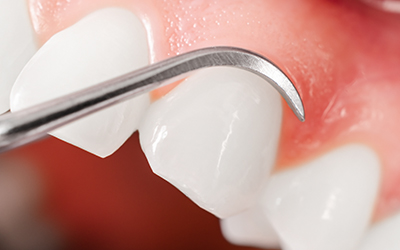Image Credit:
File ID 43636805 | © Batke82 | Dreamstime.com

Periodontitis is a severe periodontal disease affecting the gums, teeth, and supporting bone structure. This condition is caused by a bacterial infection that triggers inflammation and destruction of the gum tissues and the bones that hold the teeth in place. In this blog, we'll delve into the details of periodontitis, its causes, symptoms, and available treatments.
Periodontitis is mainly attributed to inadequate oral hygiene, which allows bacteria and plaque buildup on the gums and teeth. However, other factors such as smoking, genetics, and underlying medical conditions can also contribute to the development of periodontitis.
The early symptoms of periodontitis include redness, swelling, and bleeding of the gums while brushing or flossing. As the condition progresses, patients may experience bad breath, receding gums, loose teeth, and pus-filled pockets around the teeth.
Periodontitis is a serious condition that requires prompt treatment to prevent tooth loss and further complications. Treatment options may include:
Periodontitis is a serious gum disease that requires immediate attention to prevent tooth loss and other complications. If you notice any symptoms of periodontitis, such as bleeding gums or bad breath, you must consult a dentist or periodontist immediately.
The treatment of periodontitis involves a combination of non-surgical and surgical options, depending on the severity of the condition. Tooth extraction and replacement with implants or bridges may also be recommended in some cases. It is important to uphold proper oral hygiene practices and attend routine dental check-ups to prevent periodontitis and other issues.